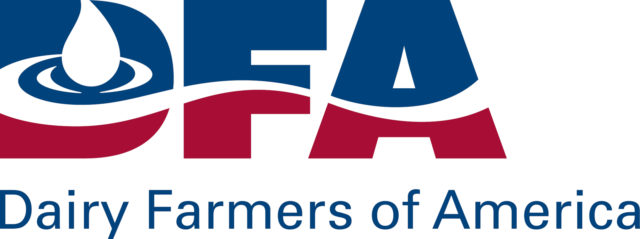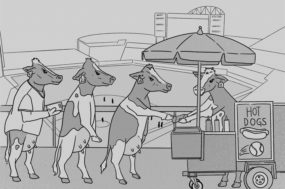- Dairy cow slaughter rate starts 2020 high
- USDA dairy trade forecast shows uptick
- China starts ‘Phase One’ protocol implementation
- Michigan, USDA set new bovine TB control requirements
- Wisconsin ag forum seeks to draw presidential candidates
- New York farm labor wage board sets hearings
- Air quality EQIP aid available in California
- Wisconsin dairy animal abuse claim ‘unfounded’
Dairy cow slaughter rate starts 2020 high
Federally inspected dairy cow slaughter was estimated at 298,500 head in January 2020, the highest monthly total to start a year since 1987. January’s total was 33,100 head more than December 2019 but just 100 more than January 2019, according to the USDA’s Livestock Slaughter report.
The highest monthly slaughter total for any January was 312,000 head in 1986, a year of the federal whole-herd buyout.
Heaviest culling during January 2020 occurred in the Southwest (Arizona, California, Hawaii and Nevada), where 77,800 dairy cows were removed. That was followed by 70,700 in the Upper Midwest (Illinois, Indiana, Michigan, Minnesota, Ohio and Wisconsin); about 52,300 head in Delaware, Maryland, Pennsylvania, West Virginia and Virginia; about 31,500 head in Alaska, Idaho, Oregon and Washington; and about 31,400 head in Arkansas, Louisiana, New Mexico, Oklahoma and Texas;
At 3.224 million head, total year 2019 slaughter was about 71,200 more than 2018. It was just the fourth year annual slaughter topped 3 million head in more than three decades.
USDA dairy trade forecast shows uptick
Slower growth in global milk production is expected to result in stronger prices and higher export volumes, particularly for nonfat dry milk, according to the USDA’s quarterly Outlook for U.S. Agricultural Trade report, released Feb. 20. Much of the outlook report was likely compiled prior to the trade and market impact of the coronavirus in China.
The USDA estimated fiscal year 2020 (FY 2020) (Oct. 1, 2019 – Sept. 30, 2020) dairy exports at $6 billion, up about $325 million from the year before and $200 million more than last November’s forecast.
Due to the mixed nature of products, the report does not provide an estimate of dairy product volumes.
The USDA raised the FY 2020 U.S. dairy import forecast to $3.6 billion, down $95 million from the year prior. Estimated FY 2020 cheese imports,at $1.3 billion would be down $48 million from FY 2019.
China starts ‘Phase One’ protocol implementation
China has begun implementing ag-related commitments under the U.S.-China Phase One Economic and Trade Agreement, according to an announcement by U.S. Secretary of Agriculture Sonny Perdue and U.S. Trade Representative Robert Lighthizer. The agreement entered into force on Feb. 14.
Specific to dairy, the actions include updating lists of U.S. facilities approved for exporting dairy products and infant formula. Other steps include revising protocols affecting importation of U.S. potatoes, poultry, pet food, feed additives and seafood. In addition, China has begun announcing tariff exclusions for imports of U.S. agricultural products subject to its retaliatory tariffs.
Michigan, USDA set new bovine TB control requirements
A memorandum of understanding (MOU) signed by state and federal officials sets new requirements for the control of bovine tuberculosis (bovine TB) in the northeastern part of Michigan’s Lower Peninsula.
The new MOU affects bovine TB status, cattle and bison identification, testing and movement, as well as wild deer surveillance in a number of Michigan counties. Requirements and timelines vary by location and will be outlined in letters to individual producers in the affected area.
The MOU was signed by officials with the Michigan Department of Agriculture and Rural Development (MDARD) and the Department of Natural Resources, and the USDA’s Animal and Plant Health Inspection Service Veterinary Services (APHIS-VS).
Implementation of the MOU requires a new zoning order, which is subject to public meetings and a comment period. Dates and locations of meetings are available on the MDARD website. The new zoning order is proposed to go into effect on April 1; public comments will be accepted until March 31.
Wisconsin ag forum seeks to draw presidential candidates
A coalition of farm and civic groups plan to draw presidential candidates to a Dairyland Forum and Rally for Rural Wisconsin, March 29. Wisconsin’s presidential primary election is April 7.
According to leaders of the Wisconsin Farmers Union (WFU), the event will call attention to the impacts of monopoly power in agriculture and food sectors. The event, which is free and open to the public, will provide an opportunity for presidential candidates to engage with voters and share stances on rural issues.
“Monopolization and lack of enforcement of federal anti-trust laws are having a direct impact on family farms and businesses across Wisconsin, and the Dairyland Forum will offer an opportunity to learn more about that topic while also celebrating and sampling the great local fare America’s Dairyland has to offer with craft beers, cheese, brats and more,” said WFU Executive Director Julie Bomar.
The forum and rally will be held at the Dunn County Fairgrounds, Menomonie, Wisconsin. The doors open at noon, with the Rally for Rural Wisconsin kicking off at 1 p.m. and candidate forum at 2 p.m., followed by a call to action and music, dancing and sampling of local fare.
Organizers include the Wisconsin Farmers Union, Citizen Action, Equal Exchange Co-op, Family Farm Action and Voces de le Frontera.
Bus routes are being organized from the Appleton, Superior and Madison areas, with more details to follow. RSVP at the WFU Dairyland Forum website.
New York farm labor wage board sets hearings
The New York Farm Labor Wage Board will hold five public hearings, from late February through April, providing farmers an opportunity to share how employee overtime rules affect their businesses and employees
The board was created by the recently enacted Farm Laborers Fair Labor Practices Act and is statutorily required to hold hearings to consider lowering the current 60-hour work week threshold for overtime. New York Farm Bureau President David Fisher, a dairy farmer from Madrid, New York, is one of three members on the board.
Hearing dates and locations are: Feb. 28, Albany; March 3, Syracuse; March 23, Binghampton; April 16, Long Island; and April 23, Batavia. All sessions begin at 11 a.m.
Click here for specific sites and registration information.
Air quality EQIP aid available in California
The USDA’s Natural Resources Conservation Service (NRCS) is providing technical and financial assistance to help California farmers take steps to improve air quality. Assistance is being made available through NRCS’ Environmental Quality Incentives Program (EQIP), National Air Quality Initiative (NAQI).
The initiative is designed to help agricultural producers meet air quality compliance requirements and offer opportunities to support practices that reduce oxides of nitrogen (NOx), volatile organic compounds (VOC) and particulate matter (PM) emissions from agricultural sources.
Financial assistance priority is targeted toward more than 35 counties identified as having significant air quality resource concerns based on the U.S. Environmental Protection Agency (EPA) “nonattainment” designations for ozone and particulate matter or predesignated as “attainment (maintenance area)” for PM10 or PM2.5. These areas experience air pollution levels that persistently exceed the NAAQS established by the Clean Air Act.
For more information about EQIP, how to apply, and program eligibility, interested applicants should contact a NRCS field office.
Applications are accepted year-round, but interested producers need to be ready by March 18, 2020, to be considered for the initial round of funding.
Wisconsin dairy animal abuse claim ‘unfounded’
Humane officers have determined video of alleged animal abuse and neglect on a Green County, Wisconsin, dairy farm were taken out of context and that any complaints against the dairy are unfounded.
According to press release from the Green County Sheriff’s Office, an email received on Feb. 3, 2020, reported suspected animal abuse or neglect at Pinnacle Dairy and provided links to 25 short YouTube videos that showed injured, ill or deceased cattle and at least one video displaying an individual kicking a dairy cow. The same link was emailed to the Green County district attorney as well as at least one news outlet.
On Feb. 20, a team of seven deputies from Green, Rock and Lafayette counties made an unannounced visit to the Pinnacle Dairy. The team had received specialized humane officer training and were accompanied by a deputy who had extensive experience in working in the dairy industry and a Wisconsin state veterinarian.
Deputies determined that the short videos had been recorded in January 2019, and that the individual believed to have made the recordings had his employment terminated from Pinnacle that same month.
The videos were determined to be out of context and not an accurate reflection of practices at the farm. Deputies learned that the employee shown kicking the cow had been terminated as an employee in May 2019 for performance issues.
After the premise inspection, deputies and the state veterinarian unanimously determined the complaints of animal abuse or neglect or issues concerning the disposal of carcasses was unfounded, and that no additional law enforcement action was warranted. The premise was clean, sanitary and had adequate areas for injured or ill animals and had veterinary care for animals that were in need of treatment. ![]()

-
Dave Natzke
- Editor
- Progressive Dairy
- Email Dave Natzke







